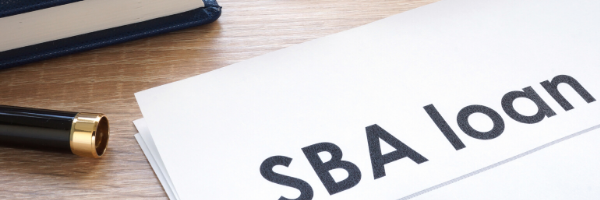
Does your organization extend Small Business Administration (SBA) loans to other businesses? If so, are you reporting those loan payments to the commercial credit bureaus?
This may sound like a strange question to most SBA lenders. However, many financial institutions and other lenders still don’t understand the SBA’s credit reporting requirements. This is in spite of the fact that these requirements for SBA-guaranteed loans have been in place for nearly 25 years. Plus, the COVID-19 pandemic and its ensuing economic meltdown are no excuse to NOT report SBA loans.
The Debt Collection Improvement Act of 1996 (DCIA)
The SBA has tried to remind lenders about the reporting rules. In December 2014 the agency shared a memo clarifying credit bureau reporting for SBA 7(a) loans. The 7(a) loan is the SBA’s primary program for lending to small businesses. This type of loan is used for working capital and purchasing a business, while the SBA’s 504 loan is used to purchase commercial real estate. In 2019, the agency approved more than 58,000 7(a) and 504 loans totalling more than $28 billion.
The memo read, in part:
“In accordance with the Debt Collection Improvement Act of 1996, Lenders are required to report information to the appropriate credit reporting agencies whenever they extend credit via an SBA loan. Thereafter, they should continue to routinely report information concerning servicing, liquidation, and charge-off activities throughout the life-cycle of the loan.”
With the issuance of the DCIA guidelines, responsibility for collecting on all non-tax debts due to the federal government were turned over to the Treasury Department. The purpose of the DCIA was to maximize collections and minimize the costs of delinquencies. To do this, the DCIA dictates that the government will “rely on the experience and expertise of private sector professionals to provide debt collection services to federal agencies.”
To whom and what to report SBA loans
The SBA requires lenders to report SBA-guaranteed loan information to one or more of the designated commercial credit reporting agencies (CRAs). Currently, there are more than 30 commercial CRAs in operation. However, the most popular are:
- Dun and Bradstreet,
- Equifax, and
- Experian.
Each of these CRAs may request specific data from lenders reporting SBA loans. However, the SBA requires lenders to submit particular information about each SBA loan you services. This includes:
- The name, address, and taxpayer ID number,
- The amount, status, and history of the debt, and
- The agency or program under which the debt arose, such as 7(a) or 504.
Yes, you must report during COVID-19
One of the most important aspects of reporting is knowing when to submit your information to the CRAs. In such an unprecedented time as a global pandemic, you might think reporting credit is one of the least of your worries. Unfortunately, that’s not the case.
As with any type of credit extension, the government, CRAs, and creditors expect and deserve timely and accurate credit reporting. For SBA loans, “timely” means reporting credit data at least once a quarter. However, the 2014 SBA memo states, “more frequent updates may be provided as necessary to maintain the integrity and accuracy of the information being reported.”
Need help reporting SBA loans to the CRAs?
If all of these requirements and guidelines sound daunting, Datalinx LLC can help. Our credit bureau reporting software simplifies reporting commercial credit to the bureaus. Plus, our team’s expertise ensures that every report you send to the CRAs is accurate and on time. Reach out to Datalinx today to learn more about our credit reporting services.
Speak Your Mind